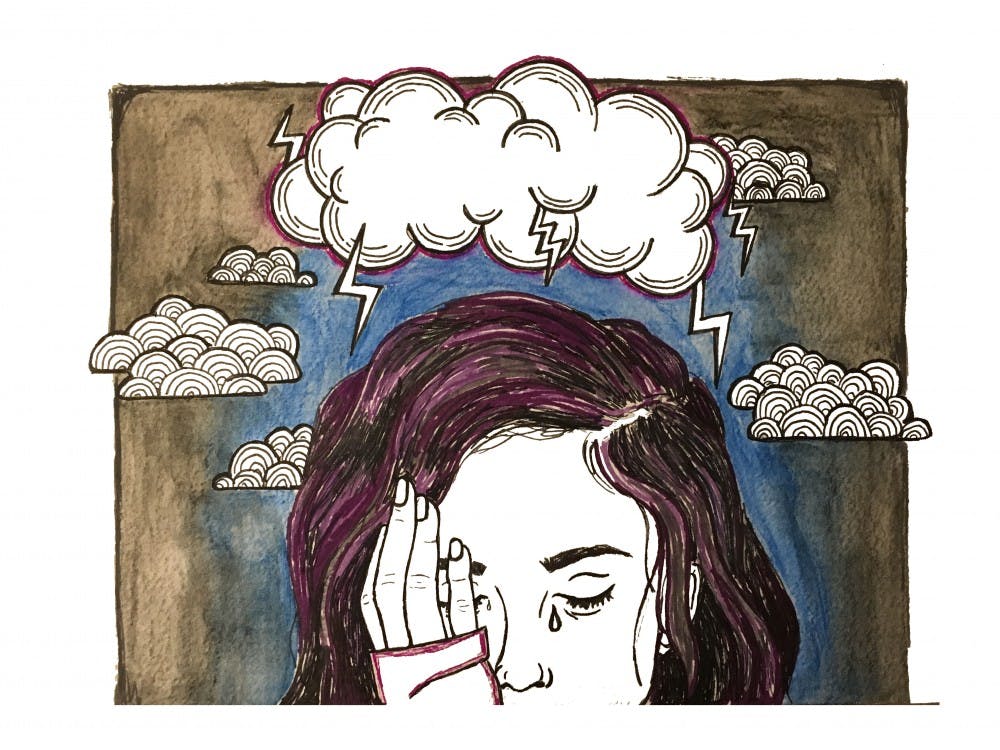Last spring, I had a conversation with my father about Netflix’s 13 Reasons Why. This is a rare thing for us—my dad typically only cares about television if a football game or an OJ Simpson documentary is on. He doesn’t care about most shows, but he does care about his job as a middle school principal and the students that he works with. When he became concerned about a new show that they were talking about at school, he asked me if I had seen it. I did—first, a few episodes with mild disinterest, then the rest of the show in one outrage–fueled sitting—and by the end, I came to understand why teachers and administrators, as well as TV critics, had issues with it: it’s a reductive and glorified account of what it’s like to struggle with mental illness, aimed at an impressionable audience.
Earlier this year, I saw a similar storyline play out on a different show—this time on The CW’s Crazy Ex–Girlfriend, when the main character attempts to overdose on anxiety medication. It garnered substantially less attention than 13 Reasons Why’s gruesome bathtub scene, but in many ways it succeeded where its counterpart failed. In recent years, there have been a number of shows that attempt to address mental health in their storylines—BoJack Horseman, Mr. Robot, and Lady Dynamite to name a few. As the issue of living with mental illness gains traction in television, it’s worth looking at what separates an honest portrayal from an offensive one.
Mental illness is stigmatized, and needs to be talked about more openly. This is not only my personal opinion, but also a view that most people seem to hold. These days, it seems that everyone, from politicians to the Pope, has expressed a desire to open up the conversation—but efforts often end there. Suicide rates in the U.S. have been steadily increasing since 1999, some and experts think that we’re in the middle of a public mental health crisis. Yet discourse always seems to stop before the actual conversation begins. If a majority of people agree that we should be talking about this more, then why has there been a continued silence?
The answer is that mental health is a hard thing to talk about. This goes beyond stigma and societal pressure: if you experience a mental health issue, not only can it be uncomfortable to discuss, but it can also feel difficult and isolating to even try to describe what it’s like to others who haven’t experienced the same thing. Conditions like anxiety and depression are almost impossible to talk about in the abstract. Television presents us with both a powerful means to communicate this experience, and countless potential pitfalls.
The biggest crime a show can commit is insensitivity. This is the reason that it stings to watch that episode of Full House where DJ “develops” an eating disorder only to recover in twenty minutes with the help of kind words from her family. But even sincerely well–intentioned depictions, rendered with a lot of heart, can end up feeling offensively wrong. The mistake that many showrunners make is getting things wrong by trying too hard to get them right. 13 Reasons Why tried to be a perfect encapsulation of the diverse array of mental health issues teenagers experience today; by doing so, it set itself up for failure.
Poorly written storylines about mental health are plagued by extremes: romanticizing mental illness or vilifying it, portraying the mentally ill as only perfect victims or unhinged psychopaths, letting it define a character or adding it as a “quirk.” Mental illness is not a monolith; in real life, things are rarely so black and white. Shows like Crazy Ex–Girlfriend do not always get the conversation right, nor do they claim to—and this is what makes their voices so strong.
There’s a moment in Season 3 of Crazy Ex–Girlfriend where the main character, Rebecca, is sitting in her therapist’s office and says the following: “You know, my whole life I’ve only known how to be, like, really good or really bad ... but being a human is living in that kind of in between space. It’s making mistakes, and that’s very scary, but also very cool.” The same thing could be said when it comes to mental health storylines on our favorite shows. The topic is loaded and fraught, and there are many places for potential missteps; however, when done well, proper representation is more than “cool”—it can be life changing.







